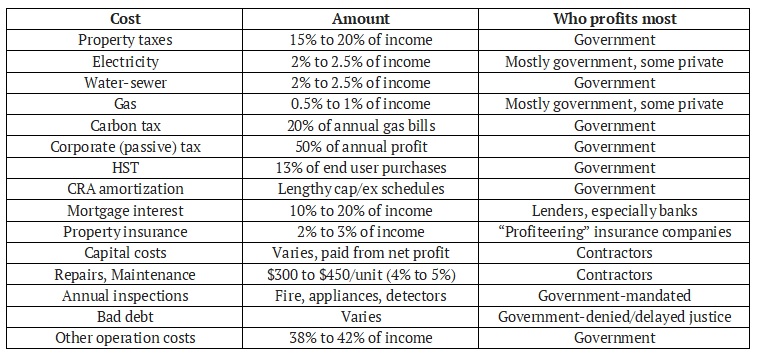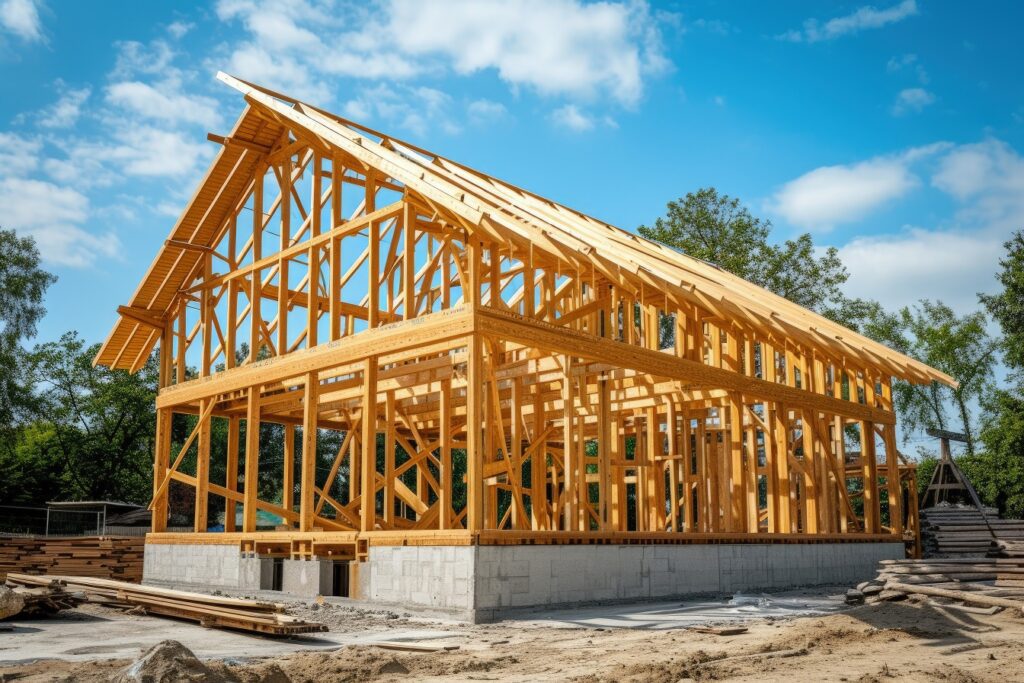Those of you who are not currently working in the real estate industry probably aren’t familiar with the publication, “Real Estate Magazine,” or REM as we know it.
REM’s “About Us” section reads:
REM (Real Estate Magazine) is Canada’s premier monthly magazine for real estate professionals. REALTORS®, real estate agents, sales representatives, brokers, owners, administrators, and other real estate industry stakeholders read REM every month for news, analysis, and commentary on Canadian real estate.
REM is independently owned and operated, and is not affiliated with any real estate association or board.
But I would offer that REM isn’t only for real estate professionals. In fact, they often have some great content that the general public can benefit from.
Then again, it seems that a large portion of the general public is really only interested in articles that talk about house prices declining, regardless of the authenticity and accuracy of the stated facts.
It’s been a tough couple of days wading through the news, questions, and grandstanding politicians talking about “blind bidding.”
I don’t know if I can get into this today, honestly. It’s more than a Friday Rant, and it’s almost redundant at this point to talk about government legislation that has no impact, or worse – has unintended consequences.
Different news sources are going to provide different news. That’s been happening since the dawn of time. Look at Fox vs. CNN, for example. But this week, if you merely read the headlines (which many people do…) you would think “blind bidding” is over and done with, it was the sole cause of house price increases, it was driven by greedy Realtors who only make a commission on the portion of the sale “above asking,” and that the housing market is cooling to the point where everybody can own a home.
Right?
Maybe I’ll get into this on Monday. I’m undecided right now. I’m just so sick of misinformation, politics, and learned ignorance.
What I wanted to talk about today was an article that ran in REM earlier this week which touches on a conversation we’ve had here on TRB many times, as well as much of what the public debates on a regular basis: Who is making money off real estate?
Perhaps a second and more appropriate question is: Why is real estate so expensive?
I went on CTV Your Morning on Wednesday and was asked about the “changes to blind bidding,” and I made sure my first point was about all of the ways in whcih we’ve looked to blame someone or something for real estate prices. It’s foreign buyers. It’s low interest rates. It’s speculators. It’s flippers. It’s vacant homes. It’s taxation and development charges. And now, it’s the system, so let’s get down with early-2021’s hottest buzz word and ban “blind bidding.”
The point I wanted to make is that instead of accepting housing prices for what they are, many people need to find a culprit! Instead of accepting that the interaction of buyers and sellers in a free market, which results in a supply-and-demand surplus, balance, or deficit, is what determines pricing, many people want to “fix” a system or “solve” a problem.
This article in REM oh-so-eloquently shows us not only who profits from unaffordable housing but also why housing is expensive in the first place…
Who Profits Most From Unaffordable Housing?
By: Chris Seepe
April 18, 2022
Rental and purchase housing unaffordability will be the top-of-mind determining factor in our next provincial and federal elections.
The federal political parties are indistinguishable when reviewing their respective solutions. None understand the core fundamental causes of unaffordability, nor do provincial housing ministries and CMHC.
Who’s driving unaffordability?
All tenant advocates and most politicians and media blame the obvious culprits: landlords and investors. But who really benefits? Who stands to profit most from increased prices? Follow the money.
Ongoing operational costs include:

Notes: 33% of Toronto’s $11.8-billion revenue comes from property tax.
Missing middle housing corporate income tax is 50% while large operators (five or more employees) are taxed at around 13%
Maintenance costs of aging rental properties are between $300 and $450/unit but CMHC applies $850/unit, which substantially decreases property value and torpedoes many financing deals.
Ontario’s zero-percent 2020 annual rent increase wiped out $2.3 billion in rental housing equity used in part for property maintenance and upgrades.
A 2020 National Apartment Association survey reported that half of rental revenues are mortgage payments and property taxes and both of these are inflexible and must be paid to avoid powers of sale and foreclosures.
One-time costs include:

After a lifetime of servitude to providing rental housing, government siphons 25% of a property’s profit and demands that all depreciation previously taken must be repaid. The amount varies but can be 20% of profit from a sale.
Toronto’s land transfer tax doubles Ontario’s, which increased 560% since 1998.
Ontario was formed in 1867 but 87% of its net public debt accumulated since 1990. Ontario’s debt is higher than 168 countries including Russia and increased 1,000% in just 30 years.
First-time buyer incentives add more competition to ever-dwindling housing supply.
Other government- and lender-mandated costs include home inspection, property appraisal, title insurance, building insurance and condo reserve.
Other unaffordability costs and influences include land prices, land services (utilities, roads), supply chain choke points, construction material (increased two to four times in one year), construction labour and crime rate.
CMHC’s new Select points-based affordability program is based on the same antiquated and fatally flawed income-to-price ratio of the past 50 years that has ultimately led to Ontario losing 106,000 affordable rental housing units between 2020 and 2026 while Toronto eliminated 1,100 uninhabitable affordable units in 2019.
All political parties essentially proffer “tax the culprits,” supposedly to reduce demand. Taxes do nothing to dissuade investors and speculators, who aren’t the real culprits in any event. These taxes are added to the cost of doing business and simply passed on to the next buyers, thereby forever increasing unaffordability.
It’s no coincidence that the two Canadian provinces with the highest rental and purchase unaffordability rates are also the ones with the highest level of government interference in the housing industry: rent control, brutal anti-landlord and tenant-biased legislation, and a plethora of other disincentives to building new housing and upgrading existing housing.
The money trail of unaffordability leads straight back to the supposed steward of housing affordability.
Almost all government housing-related income and penalties are based on the value of property. The higher the property value and rent rates, the more income it generates for government. Not only is it a fundamental conflict of interest, but it’s also a paradox: government (and banks) cannot afford affordable housing.
If government harnessed its deflection and misdirection skills to addressing unaffordable housing or even simply stopped tampering with forces of which it has little knowledge and no control, the housing crisis would have been averted years ago.
As I said: call this biased if you want.
But is it wrong?
It’s opinionated. But is it wrong?
The money trail of unaffordability leads straight back to the supposed steward of housing affordability.
No kidding.
While I was busy being emailed “letters to the editor” this week from angry Ontarians who blame real estate agents and “blind bidding” for high real estate prices, the government was busy patting themselves on the back for their amazing “changes” to the Trust In Real Estate Services Act (TRESA).
Conservative MPP Ross Romano was quoted as saying:
“With these new protections, hard-working Ontarians can rest assured knowing that we have their backs!”
Could you possibly be more full of crap?
It’s like you walked into a room, had no clue who you were talking to, had no clue what was being discussed, and then simply puked political jargon.
Look at how many times the word “government” appears in those two charts above.
Look. Seriously. Scroll up again; do it for me.
I know that the contrarian opinion will shout, “David, this article was written for a real estate magazine!” But the content isn’t inaccurate, and the opinions shared therein, based on that content, can’t really be wrong.
I was going to save this for another day as well, but it fits so perfectly here: the City of Toronto raised development charges 49% last week.
Yes, you read that correctly; 49%.
And the best part?
This was only days after the federal Liberals announced a budget that focused on housing affordability.
As a TRB reader commented last week: “Take that, housing affordability!”
So folks, at the risk of being brief, I’ll end today’s post right here and now. We’ll talk about blind bidding and development charges next week. Unless, of course, y’all want to comment below…
































Mike
at 7:23 am
100% I expected a post on blind bidding today.
Average Joe
at 9:39 am
I’m pretty sure my electricity bills didn’t go up because the value of my home went up. That isn’t an example of the government “profiting” from my home value doubling – same with carbon taxes and all that other utility stuff. Those are just the costs of using a house and living in it. My house value could go to zero and I’d still pay those.
Municipal delays create profit for the government? The government profits from both locking out buyers and creating more competition? I’m all for ranting against the government but half of these don’t make any sense. If we’re on the topic of development charges, it would be interesting to have a guest post here on why that’s happening. How are cities funded and where does all that money actually go.
marmota
at 3:49 pm
Yes… However, if you have a larger house (usually more expensive) your costs will also go up and the government gets more money for it.
Need a 3br house because you have a larger family… government gets more money in almost everything associated to it. That is also compounded if you are of lower income: You’re poor and can’t afford a newer house, with better insulation, windows, newer efficient appliances or furnace: government gets more money from you.
Julia
at 9:40 am
I don’t follow this analysis, is it just me?
One problem is that it doesn’t distinguish at all between revenue and profit. Just because the government collects fees associated with say “zoning variances” doesn’t mean they profit from it. Not to mention I don’t see how the author can state that the government profits most from “professional tenants”, “1st time home buyer incentive”, “eviction suspensions”? To me this looks like a laundry list of real estate related buzzwords with “government” arbitrarily listed next to things.
Most of the costs in “ongoing operational costs” certainly impact unaffordability, but they have little or no connection to the purchase price of the property.
Many of the costs relate to investors/landlords, but not to owner-occupied properties. But the biggest issue is that the analysis conveniently leaves out the actual “profit” on investment properties. It lists “taxable gains tax” and “recoverable CCA”, but these are taxes on … well … capital gains. Who profits form the capital gains? Who profits from rental income? You can’t just have an analysis that lists all the costs to an investor and ignores their revenues.
Derek
at 10:09 am
Yeah, that seems like such a weird (nonsensical) narrative.
Tony
at 10:35 am
I think the point was made though. Real estate is expensive primarily because of development charges, land transfer tax, property tax, capital gains tax, etc. Then all the solitons to the housing crisis which come in the form of taxes only add to the cost.
Tony
at 10:35 am
*Solutions
Jennifer
at 12:21 pm
Not just you. You said it best.
Land transfer tax government may be better of with more transactions, as opposed to higher prices. In fact, get rid of municipal LTT altogether on residential purchases, increase property taxes to make up for that, and we’ll actually see some supply or at least a happier people since they won’t feel stuck in their home that may no longer be suitable.
William
at 10:39 am
Tell me you don’t understand how taxes work without telling me you don’t understand how taxes work. (eye roll)
This definitely touches on areas of housing that need improvements – the entire landlord-tenant relationship and regulation as one key example – but improving that is going to cost money, which has to come from somewhere.
Raising property taxes is apparently politically unpalatable, so how do we fund infrastructure and services? The obvious answer is to make users pay for things directly – so water, electric bills go up, road tolls on every highway, etc. – but you apparently think that’s profit for the government.
If you dig into the majority of areas where “profit” is attributed to the government you actually find areas where homeowners are being subsidized by everyone else (and I say that as someone who owns more than one property). Meanwhile we are all subsidizing rich people’s electric bills through our taxes because the real cost of electricity is not reflected on our bills. Most of these points come off as disingenuous, or frankly just whining that things should all get paid for by “someone else”.
M
at 11:54 am
Government: builds community centre and transit in neighbourhood.
Homeowner: this should be good for my homes value.. I love the free market.
Government: we have to slightly increase taxes to pay for these amenities.
Homeowner: Damn government! Profiting off my hard earned equity!!
Mxyzptlk
at 8:56 pm
Couldn’t have said it better myself.
marmota
at 3:54 pm
HST on electricity and gas?
Andrew
at 10:48 am
This analysis is hardly cutting-edge but it’s not wrong, it just needs some refining and specifics and maybe a few sources. I don’t think any of us equate REM with the Wall Street Journal so take this for what it is: a conversation starter about the actual role and affects of government in the housing market.
Condodweller
at 11:44 am
Love this: “government (and banks) cannot afford affordable housing”
This is what’s going to lead to problems if banks keep playing with qualifying in order to get people into homes and issuing higher risk loans.
This article is obviously from a commercial rental unit point of view. It looks pretty realistic to me as far as I can tell
If this magazine operated in Hong Kong the staff would have been loaded into a
van and they would have been shut down.
Adrian
at 1:28 pm
I’m fairly familiar with both operating and construction budgets for new developments given my work as a financer and these charts don’t make a lot of sense. Sure, development charges are a huge cost and there’s an argument to be made that they should be lowered to spur development. But really..
– banks are not profiting off of high interest rates (we make money on the difference between our cost of funds and the rate we charge… doesn’t matter what interest rates are)
– government is not profiting off of “delays” or “200,000 buyers being locked out” not even sure what to say to that since it makes no sense. Plus a lot of these so-called costs would be going to government regardless of prices (inspections, provision of utilities, etc).
– CMHC’s Select program has had huge uptake from developers and having processed a number of applications I’d say it’s a well structured program. I’d go so far to say that CMHC insurance for construction of apartment developments is one of the only reasons we’re seeing purpose built apartment development in Toronto (I could go into the economics of why but that’s a whole other comment…)
Like David has said numerous times, it’s ultimately supply and demand. We are just not building fast enough for the number of people that want to live here. We need a faster zoning process to make it easier to approve high density projects and sure, maybe throw in lower development charges. High housing prices is not good for a government, unhappy house-poor people are not going to vote a government back in. This idea that government is doing nothing so they can live off of LTT and development charges doesn’t make sense to me.
Will
at 4:55 pm
Agreed. I actually think (uncomfortably) that it’s pretty obvious who benefits from unaffordable housing – the people that own said unaffordable housing.
Occam’s razor.
Now, government needs to make it easier to build, and especially local governments are beholden to said above group, so governments being a barrier is not necessarily false. But you’re trying too hard if you say anyone benefits except the landed class. (And I say this as someone who’s recently used this team’s services to buy and sell said unaffordable housing!)
Jane
at 7:59 am
So why don’t we ban HELOCs then? This makes it easier for those who already own property to buy more properties. And we’ll kill some business for those rich bankers! And less transactions means less government revenue!
It’s a win win right? Why isn’t this reckless lending using leverage on your house seen as a problem? It definitely contributes to housing affordability.
But no, I’m sure realtors and investors don’t want to stop HELOCs right? Bcs that will kill your useless business.
Appraiser
at 9:30 am
Hardly “reckless lending.” The default rate on secured lending in Canada is infinitesimal.
Also HELOC’s are utilized for many purposes.
Joelle Oiknine
at 1:25 pm
I like Your Article I like Your Thoughts thanks For Share This Amazing Article 🙂